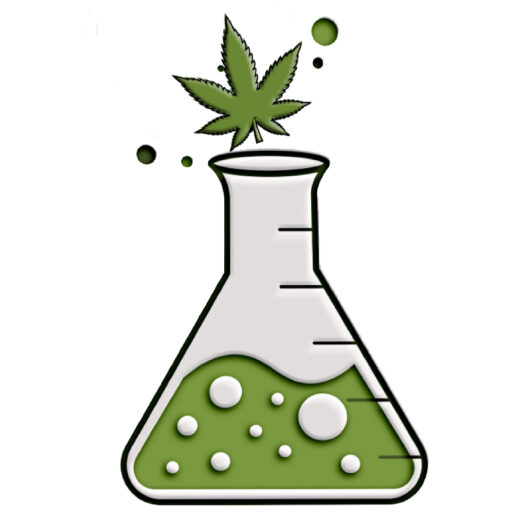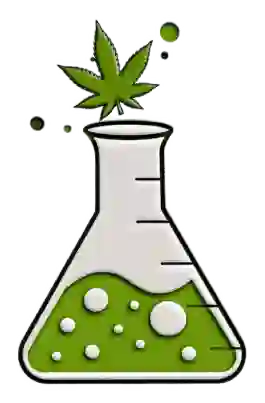CBD, short for cannabidiol, has been gaining popularity in recent years for its potential health benefits. However, there is still a lot of confusion surrounding CBD, especially when it comes to its psychedelic properties. Many people believe that CBD is not mind-altering, but in reality, CBD is psychoactive – and that’s okay.
Table of Contents
To understand why CBD is mind-altering, it’s important to first understand what psychoactive means. Psychoactive substances are those that affect the mind or behaviour, and this includes drugs like caffeine, alcohol, and of course, THC (tetrahydrocannabinol), the trippy compound found in marijuana. While CBD does not produce the same “high” as THC, it does have an effect on the brain and can alter mood and perception.
Despite this, CBD is legal in many countries as long as it contains less than 0.2% THC (0.3 in some countries). This is usually derived from hemp. In fact, many people use CBD specifically for its calming effects, making it a popular alternative to traditional anxiety medications. As more research is conducted on CBD and its effects, it’s becoming increasingly clear that its trippy properties are not something to be feared, but rather understood and embraced.
What Does Psychoactive Mean?
Misconceptions About Psychoactivity
There are a lot of misconceptions out there about what psychoactivity actually means. Some people believe that any substance that alters your mood or perception is automatically bad or dangerous. However, this is simply not true.
Psychoactivity is a natural and normal part of the human experience. We all have different moods and perceptions, and substances like CBD can help to regulate and balance those experiences. It’s important to remember that psychoactivity is not inherently good or bad – it’s simply a characteristic of certain compounds.
The Spectrum of Psychoactivity
I have monitored the effects of cannabinoids on my body and can confidently say that psychoactivity is not a simple issue. In fact, it’s more of a spectrum. At one end of the spectrum, you have compounds like THC that produce strong mind-bending effects and will get you high. THC acts on the central nervous system and alters brain function, resulting in temporary changes in perception, mood, and behaviour.
At the other end of the spectrum you have compounds like CBD that produce little to no trippy effects. BUT, CBD is considered mind-altering because it crosses the blood-brain barrier and directly affects the central nervous system. It has been shown to have calming effects on anxiety, depression, pain, and helps to promote relaxation. Its effects are much more subtle than those of THC.
However, just because a compound doesn’t produce strong hallucinogenic effects doesn’t mean it’s not psychotropic at all. CBD, for example, is still mind-altering, but CBD has been found to have a calming effect on the mind and body, and it can help to reduce anxiety and promote relaxation.
CBD and the Brain
Neural Pathways
CBD interacts with the endocannabinoid system (ECS) in the brain, which is responsible for regulating various physiological processes such as appetite, pain sensation, and mood. The ECS consists of two main receptors, CB1 and CB2, which are found throughout the body.
When CBD interacts with the CB1 receptor, it can affect the release of neurotransmitters such as serotonin and dopamine, which are involved in mood regulation. CBD also has the ability to modulate the activity of GABA and glutamate, which are the two main neurotransmitters responsible for inhibitory and excitatory signals in the brain.
Anxiety and Mood Regulation
Studies have shown that CBD can have an anxiolytic effect on the brain, which means it can help reduce feelings of anxiety and stress. This is thought to be due to CBD’s ability to increase the availability of serotonin in the brain, which is known to have a calming effect.
CBD may also have a positive impact on mood regulation, as it has been shown to increase the production of anandamide, a neurotransmitter that is often referred to as the “bliss molecule”. Anandamide is believed to play a role in regulating mood, as well as promoting feelings of happiness and well-being.
Neuroprotective Properties
CBD has been found to have neuroprotective properties, which means it may be able to protect the brain from damage caused by various factors such as oxidative stress, inflammation, and neurodegeneration. This is thought to be due to CBD’s ability to reduce the production of reactive oxygen species (ROS), which can cause damage to brain cells.
CBD may also be able to promote neurogenesis, which is the process of generating new neurons in the brain. This could have implications for the treatment of various neurological disorders, as it may be possible to use CBD to stimulate the growth of new brain cells in areas that have been damaged or lost due to disease or injury.
Therapeutic Benefits of CBD

Pain Management
As someone who has experienced debilitating pain, I can attest to the effectiveness of CBD in managing pain. CBD has been shown to interact with receptors in the brain and immune system, which can reduce inflammation and alleviate pain. A study published in the Journal of Pain found that CBD can help reduce pain and improve sleep in people with chronic pain conditions such as fibromyalgia and multiple sclerosis.
Epilepsy Treatment
CBD has also been found to be effective in treating epilepsy, particularly in children with Dravet syndrome and Lennox-Gastaut syndrome. In fact, the FDA has approved a CBD-based drug called Epidiolex for the treatment of these conditions. CBD can help reduce the frequency and severity of seizures, and it has been shown to be well-tolerated in patients.
Anti-Inflammatory Effects
CBD has been found to have anti-inflammatory effects, which can be beneficial for a variety of conditions. Inflammation is a common factor in many chronic diseases, including arthritis, diabetes, and heart disease. CBD can help reduce inflammation by interacting with receptors in the immune system and reducing the production of inflammatory cytokines.
Consumer Considerations
Product Selection
If you are able to grow your own cannabis plants, you can select seeds that have a high CBD content. You can read a blog about high CBD cannabis strains here. Once you have harvested, dried and cured the cannabis buds, you can decarboxylate them using the POT by NOIDS machine. You can also infuse the buds in an oil to take internally or use topically as a CBD oil. You could also make it into a cream or lotion.
However, if you can’t make your own, when it comes to CBD products, it is important to consider the source and quality of the CBD. It will almost definitely be hemp-derived CBD, but this may be different in a medical marijuana dispensary where it is legal to sell medical cannabis and other cannabis products. Look for CBD products that have been third-party tested and have a certificate of analysis (COA) available. This will ensure that the product contains the advertised amount of CBD and is free from harmful contaminants.
Additionally, consider the type of CBD product that best suits your needs. CBD can be found in various forms such as oils, capsules, edibles, and topicals. Each form has its own unique benefits and drawbacks, so it is important to choose a product that fits your lifestyle and preferences.
Dosage and Administration
The appropriate dosage of CBD can vary depending on factors such as body weight, tolerance, and the condition being treated. It is important to start with a low dose and gradually increase until the desired effects are achieved. Microdosing is using smaller amounts of the product throughout the day, and this may suit you better.
You can take CBD in various ways, including oral ingestion, inhalation, and topical application. Each method has its own onset time and duration of effects, so it is important to choose a method that fits your needs.
Potential Side Effects
While CBD is generally considered safe, it can cause side effects in some individuals. Common side effects include dry mouth, dizziness, and changes in appetite. You may want to speak with a healthcare professional before using any form of CBD, especially if you are taking any medications or have a pre-existing medical condition.
FAQ
Is CBD psychoactive like THC?
CBD, short for cannabidiol, is a cannabinoid found in the cannabis plant. Unlike THC (tetrahydrocannabinol), another compound in cannabis, CBD is not hallucinogenic in the same way that THC gets you high. However, it does cross the blood-brain barrier and directly affects the central nervous system.
What are the benefits of using CBD products?
The use of CBD has been associated with various benefits, including relief from chronic pain, epilepsy symptoms, anxiety, and depression. Many people benefit from CBD products for their therapeutic properties without experiencing the euphoric effects associated with THC.
Are all cannabis products psychoactive?
Yes, by the strict definition of the term. However, there needs to be appreciable levels of THC to actually get stoned. Not all cannabis strains have the same ratios of compounds. A strain of cannabis that is low in THC, but high in CBD will not make the user as high as a strain high in THC. However, the small amount of THC does actually improve the function of the CBD.
You can read more about cannabis products on this blog post Hemp Oil vs CBD Oil – What’s The Difference?
Does using CBD come with any side effects?
While CBD is generally well-tolerated, some individuals may experience side effects of CBD such as fatigue, changes in appetite, or diarrhoea.
Conclusion
CBD, or cannabidiol, has garnered attention for its potential health benefits in recent years. Despite common misconceptions, CBD is indeed psychoactive, albeit in a more subtle manner compared to THC. While THC induces a euphoric “high,” CBD affects the brain and behaviour, often promoting relaxation and reducing anxiety.
Psychoactivity isn’t inherently negative; it’s a natural aspect of certain compounds, including CBD. CBD interacts with the endocannabinoid system in the brain, influencing neurotransmitter release and mood regulation. CBD’s anxiolytic and neuroprotective properties make it valuable for conditions like anxiety, epilepsy, and chronic pain. Understanding CBD’s nature allows for its responsible

If you liked this blog post, I would love it if you shared it with a friend.
If you use Pinterest, please pin this post.
*As a POT by NOIDS affiliate, I earn from qualifying purchases.
*As a Blimburn Seeds affiliate, I earn from qualifying purchases
*As an Amazon Associate, I earn from qualifying purchases.






